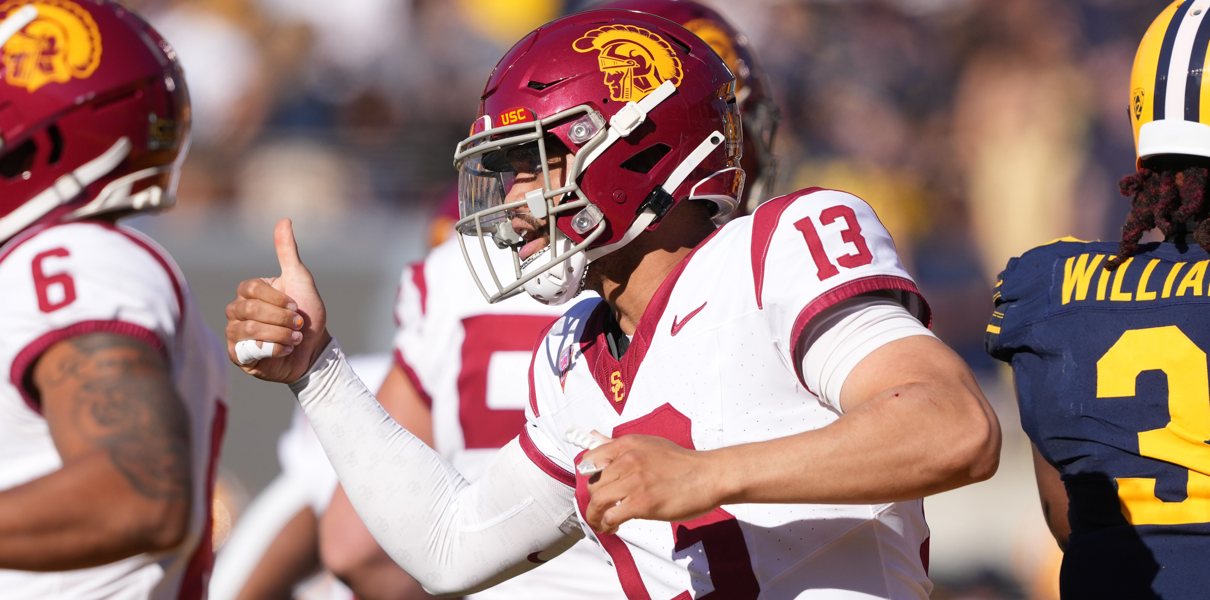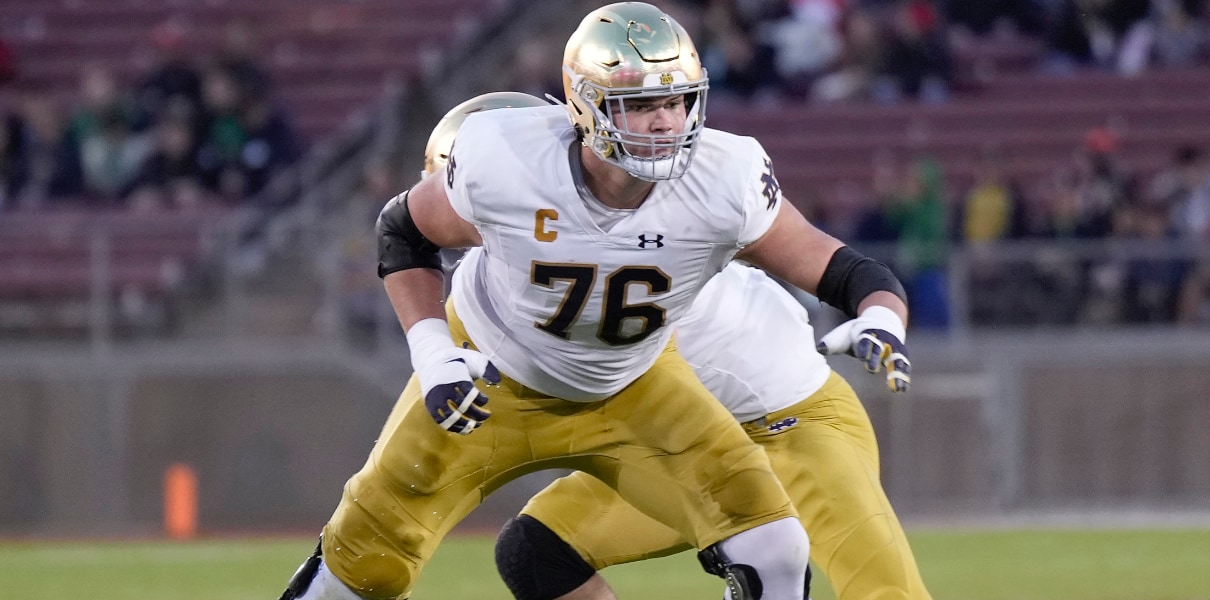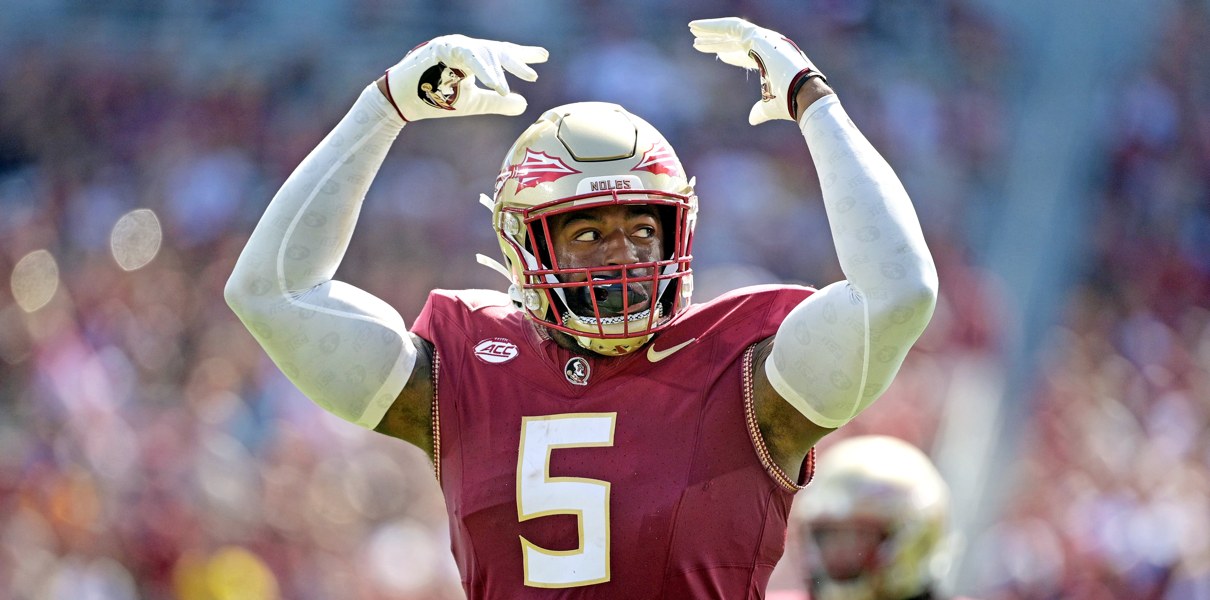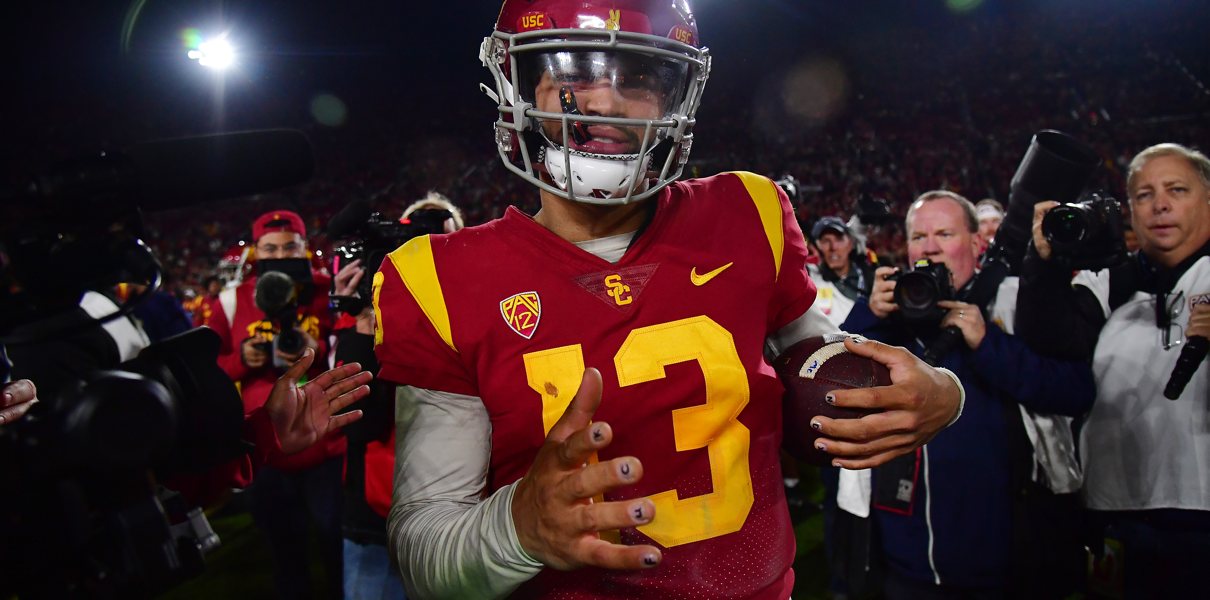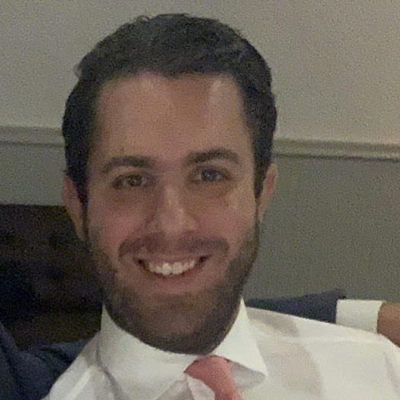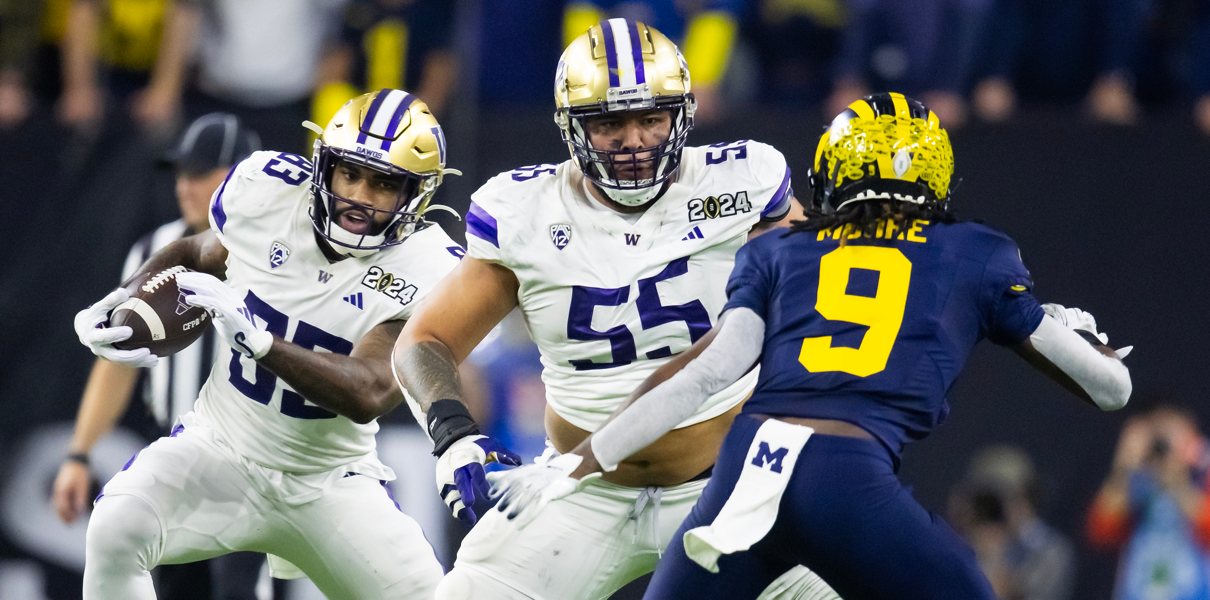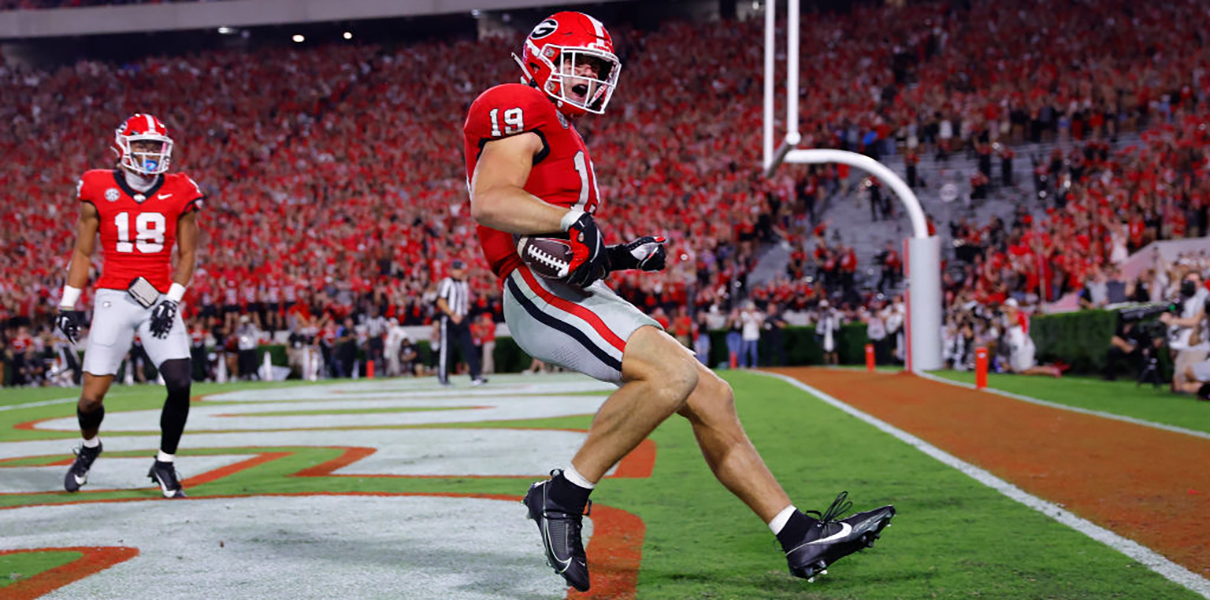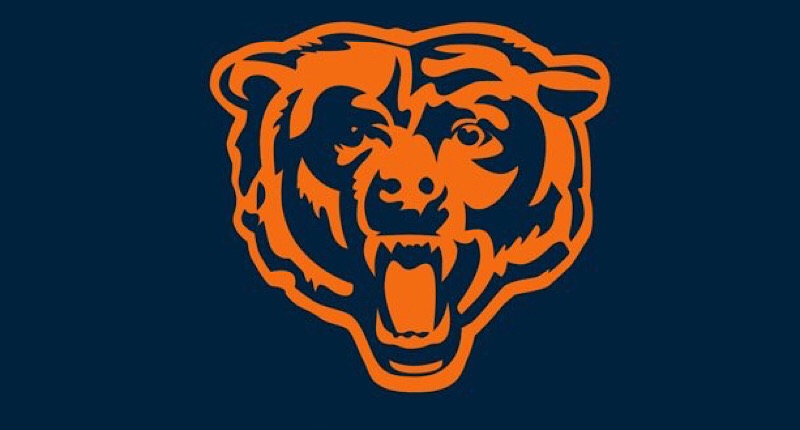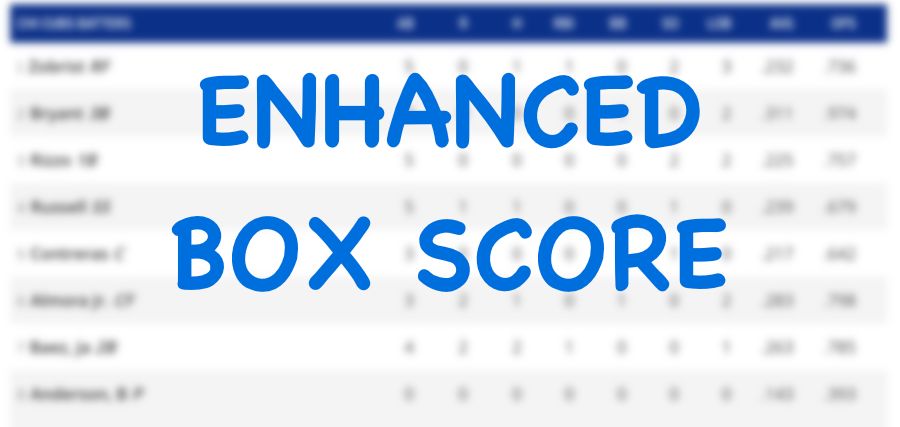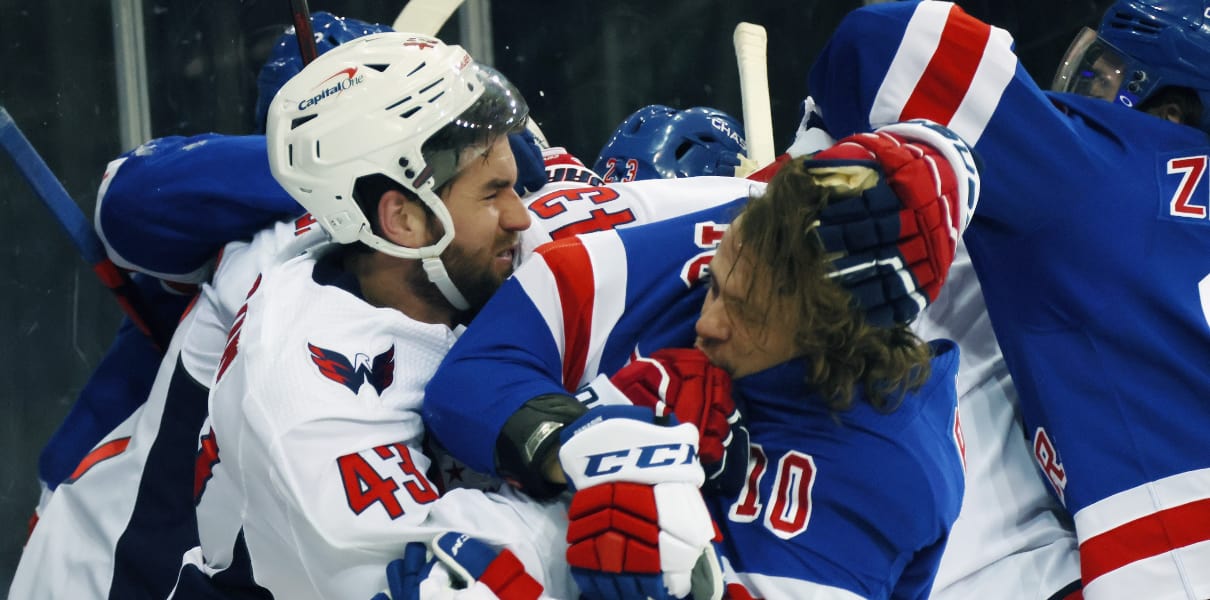We figured business was going to pick up in the Khalil Mack derby when the Rams signed Aaron Donald to what was then the largest contract ever handed to a defensive player in the NFL, and it certainly did. Once that figure came out, the Raiders knew they wouldn’t be able to satisfy Mack’s contractual desires, so a trade was destined to happen.
What makes this situation unique, however, are the layers of motivation that each of the Bears, Raiders, and even Mack had to get this deal done. Let’s explore some of it.
The Raiders Were Motivated to Trade, But Only to the Right Situation
On NFL Network’s Good Morning Football, Peter Schrager explained some of the finer details that led to Oakland ultimately trading Mack to the Bears. One factor that made the Bears more attractive than many other potential suitors was simply to get Mack off their radar: “A lot of teams were involved. The reason the Raiders were really able to make this one though, out of the conference, out of the Bay Area, and out of our way,” Schrager said on GMFB. “They never have to deal with Khalil Mack again.”
It’s not at all uncommon (for teams trading away superstars) to aim for teams as far away as possible. And the AFC West is, indeed, far away from the NFC North.
About a dozen teams called to inquire about Mack’s availability, according to Schrager. But several teams dropped out after learning that Mack needed new paper after the trade. That left the Bears, Browns, Bills, Jets, 49ers, and Packers as the most serious contenders to get the highly complex swap done. Trading Mack to their rivals across the Golden Gate Bridge in San Francisco was probably a non-starter. A deal that would have sent Mack to Cleveland, Buffalo, or to New York’s AFC team would have put the team in an unenviable position to face their former star during the prime years of his deal. This essentially left the Bears and Packers as the two most viable trade partners. And voila.
Money Talks, Mack Walks
One factor that went a long way toward pushing Mack out of Oakland was the team’s resistance to meet his contract demands. Michael Gehlken, who reports on the Raiders beat for the Las Vegas Review-Journal, shared this from Raiders GM Reggie McKenzie that sums up how uncomfortable the team was with the idea of meeting Mack’s demands to essentially be the highest-paid non-quarterback in the NFL:
Raiders GM Reggie McKenzie on Khalil Mack discussions: "We presented him with an offer. We got the counter back and talked about it with (Joel Segal). What they were demanding, it just wasn't going to work." Declined comment on how counter compared to deal Bears gave Mack today.
— Michael Gehlken (@GehlkenNFL) September 2, 2018
That the Bears were willing to make a deal that the Raiders weren’t willing to make only made this an easier pull for Chicago: “I don’t believe we were anywhere close to where the Bears were,” Raiders Head Coach Jon Gruden said, via Pro Football Talk. “He got a great contract from the Bears. A great contract. You know, $90 million guaranteed is an astronomical number, it’s phenomenal for the players, great for him obviously. But that was just something we could not do.”
The Raiders were in a tough pickle, having already paid Derek Carr a boatload of money just a year ago. I suppose you could chalk it up to the curse of the salary cap. In a cap-less league, it would be unfathomable for a team not to keep its two best players. But we live in a salary cap era that forces teams to make tough decisions.
GM Ryan Pace Kept an Eye on Mack’s Situation All Summer Long
Sometimes, patience pays off. And I suppose a little bit of luck doesn’t hurt. The Bears got a little bit of both when it came to making the Mack deal.
The Bears spent lavishly on their team needs via free agency, but didn’t dive into a less-than-appetizing edge rusher market. Chicago could have overpaid for a lesser-quality pass-rusher in free agency or even reached for one in the draft. But as Albert Breer of SI.com’s The MMQB reports, GM Ryan Pace and Matt Nagy continually kept tabs on Mack’s pending situation. Because Oakland was never going to approach that $90 million mark in an offer, it was wise for the Bears to keep their eyes what was going on out west, especially since they still had a need at the position, maintained a significant amount of cap space, and a willingness (and ability) to make a bold move.
The Bears Were Motivated Buyers
When push came to shove, the Bears didn’t flinch. Knowing you have to trade premium draft picks for Mack is one thing. Being OK with doing that while also signing Mack to a lucrative long-term extension is another. The Bears were comfortable with both aspects of this deal, hence, the two teams were able to work together and make it happen: “No team was willing to give the package the Chicago Bears were and that package was so rich,” Schrager reported on Monday. “In addition to that, they were saying ‘we will sign him to a new contract that makes him the highest-paid defensive player in the league.’ And oh baby, is he the highest-paid defensive player in the league.” Oh baby, indeed.
Mack Was Motivated to Secure the Bag … By Any Means Necessary
One of the more unique details from Schrager’s GMFB video report was Mack’s unquestionable conviction to get a deal done by making a pretty significant sacrifice. Mack didn’t show up to training camp and didn’t play in any preseason games. Schrager reports Mack was so serious about his holdout, he was willing to sit out regular games and sacrifice his weekly paychecks in the process. Mack was in the fifth year of his rookie deal that would have given him a base salary of $13.8 million. That means his weekly paychecks would have been worth a little more than $800,000 per week. That’s a healthy chunk of change, so it would take some real strength to give that up with the hope that a larger contract comes down the line.



